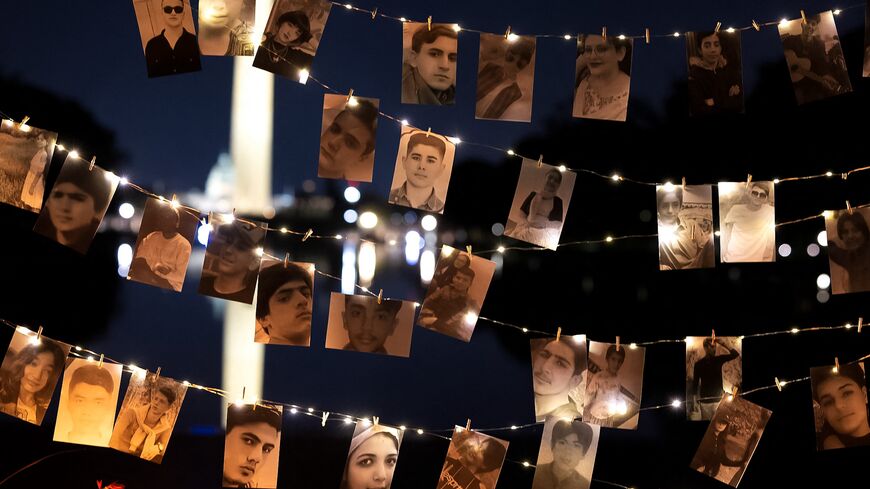An Iranian court this week sentenced 11 women's rights advocates to prison terms totaling 60 years, as authorities in the Islamic Republic continue their crackdown against any type of dissent.
An Islamic Revolutionary Court in Rasht, the capital of northwestern Gilan province, handed down the sentences, which ranged from one year to nine years in prison, local media reported. According to IranWire, the activists, 10 women and 1 man, were tried collectively in proceedings that began Feb. 29. They had been released on bail pending sentencing.
With the Iranian judiciary yet to report the sentences, the lawyers of the activists revealed them to the Tehran-based Shargh news network on Wednesday.
The activists were identified as Azadeh Chavoshian, Zahra Dadras, Zohreh Dadras, Yasamin Hashdari, Jelveh Javaheri, Negin Rezaie, Forough Saminia, Shiva Shah Sia, Matin Yazdani and a married couple, Sara Jahani and Hooman Taheri.
The charges leveled against them, according to their lawyers, included “forming a group to act against national security,” “assembly and collusion to act against national security,” and “propaganda against the system.”
The 11 activists were among 12 others detained across Gilan province during raids of their home by security forces in August 2023, a month before the one-year anniversary of the nationwide protests that erupted in response to the death of Mahsa Amini while in custody in September 2022.
According to reporting by several media outlets, including IranWire and Radio Free Europe/Radio Liberty, the activists were subjected to physical abuse and beatings while in detention.
The 2022 protests initially centered on women’s rights but subsequently broadened to encompass calls for the fall of the Islamic government. Iranian security authorities responded by launching a violent crackdown against protesters and activists, killing more than 500 people and arresting thousands of others, according to the US-based Human Rights Activists News Agency.
Many of those arrested were sentenced to death, with executions continuing into this year. Iran Human Rights, an Oslo-based group, recorded at least 604 executions in 2023 and has documented 98 executions so far this year.
In an October report, Amnesty International said Iran had executed more than 5,000 people for a range of offenses over the course of a decade, between Jan. 1, 2012, and July 31, 2023. Those put to death included religious minorities, protesters and activists and members of the LGBTQ community. Fifty-seven of them were minors.
Iran ranks second, behind only China, in the number of executions carried out per year. Exact figures were not possible to obtain, but Amnesty estimated in a 2022 report that China had executed more than 1,000 people, while Iran conducted 576 executions that year.
On Wednesday, three people, including a woman, were executed at a prison in the city of Tabriz, in northwestern East Azerbaijan province. Iran Human Rights said the three, identified as Abbas Aghayi and Yasin Zolfaghari and his (unidentified) wife, were put to death for drug-related offenses.
Iran has faced growing criticism for its clampdown on civil and political activists. Rights groups have repeatedly condemned Tehran's use of the death penalty as a tool to instill fear among the population and repress any form of dissent. They have also called out most death sentences, asserting that they were issued after unfair trials and confessions extracted under torture.



